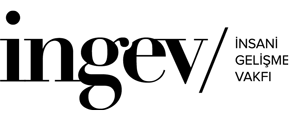The United Nations Development Programme (UNDP) published its 2023-2024 Global Human Development Report under the title “Breaking The Gridlock.” I also made a small contribution to the preparation of this report, which aptly fits UNDP’s polite position and language. I might have called it ‘breaking the locks’ myself. Human Development Reports – not just development – have actually institutionalized a profound shift in the global perspective on development issues, hence they are of historical importance.
For a long time, the discussion was dominated by economic growth and Gross Domestic Product (GDP) increases. UNDP transformed the initiative started by economists like Amartya Sen to discuss development in human-centric terms into a permanent global scale. What’s at issue here is human development, not merely development. Human development is about enhancing human capacity. Thus, the index created 34 years ago has largely succeeded in shifting the discussion on growth to focus globally on living standards, healthy living, and education.
Per capita income based on purchasing power parity, life expectancy at birth, and average years of schooling form the data for the Human Development Index (HDI). Over time, the HDI was enriched with supporting indices that monitor new global challenges. Gender, inequality, and most recently, planetary pressures addressing climate change were added to the report.
Turkiye has been one of the countries that have significantly improved their position since the first HDI. In this new report, it has advanced three places, now ranking 45th. In fact, a few places in indexes calculated with decimal figures do not statistically mean much. However, it’s significant that Turkiye has consolidated its position among the top group of countries defined as having “very high human development.” Turkiye’s performance is supported by improvements in all data that constitute the index. Nonetheless, for a country aiming to enter the top 10 in terms of economic size, being ranked 45th in human development is not sufficient. To progress further, especially gender equality is a primary target.
In terms of gender equality, our human development has regressed 18 places, falling to 63rd. Digging deeper, we find again the necessity to focus on women’s economic empowerment, an issue we at İNGEV have been intensely concentrating on over the last two years.
Over time, UNDP reports have evolved far beyond mere statistical works. They have become visionary documents that illustrate the state of the world, its problems, and its developmental directions. The last three reports have particularly assessed the global challenges we face. While highlighting traditional inequalities, they also draw attention to new forms of inequality. They explain how the Anthropocene – the human age – is leading to a climate disaster. They warn of the complex uncertainties we fall into with the spread of conflicts, forced migrations, and pandemics. The 2023-2024 report starts a new era focusing on solutions. The report’s polite title also indicates this new era: How can the gridlocks be overcome?
The direction of the answer is indicated in the report’s title; gridlocks can be overcome by reshaping global cooperation and working in three main areas: First is human agency, i.e., enhancing people’s ability and initiative to determine their own futures. Second is overcoming political polarization, populism, and mistrust. Third is systematizing aid to low-income countries.
I particularly see human agency – people’s competence and authority to make decisions concerning their own lives – as decisive. However, the serious contradiction referred to in the report as the democracy dilemma is a significant barrier. That is, while the majority theoretically supports democracy, their votes go to authoritarians. Thus, human agency is also blocked. This is actually a matter of behavioral culture that cannot be limited to politics alone. Almost all organizations operate with a top-down hierarchy; companies are embellished with CEO legends. Authoritarianism is ingrained in both the system and the individual.
Proposing a miracle solution is not within my capabilities. Only the poet’s famous lines come to mind; that is, the solution “depends on them straightening up at the edge of the dark at dawn, pressing their heavy hands into the earth.” A kind of breaking the locks issue.
Setting aside the poet’s theory, the formation of strong civil society organizations that have embraced different aspects of human development as their mission, not captive to daily political practices, will play a key role in strengthening human agency.
The HDI is in its 34th year. During this long period, some problems have worsened. Issues such as polarization, new forms of inequality, and human agency do not currently affect the classification of countries in the ‘very high human development zone.’ Here lies the traditional dilemma of the indices; to maintain the variables used to establish a trend or to add new variables to provide a contemporary understanding at the expense of breaking the trend. This issue will continue to be a topic of technical discussion in the coming years. During this period of election heat, I earnestly recommend all political parties to review the Human Development Report and compare it with their own programs.
